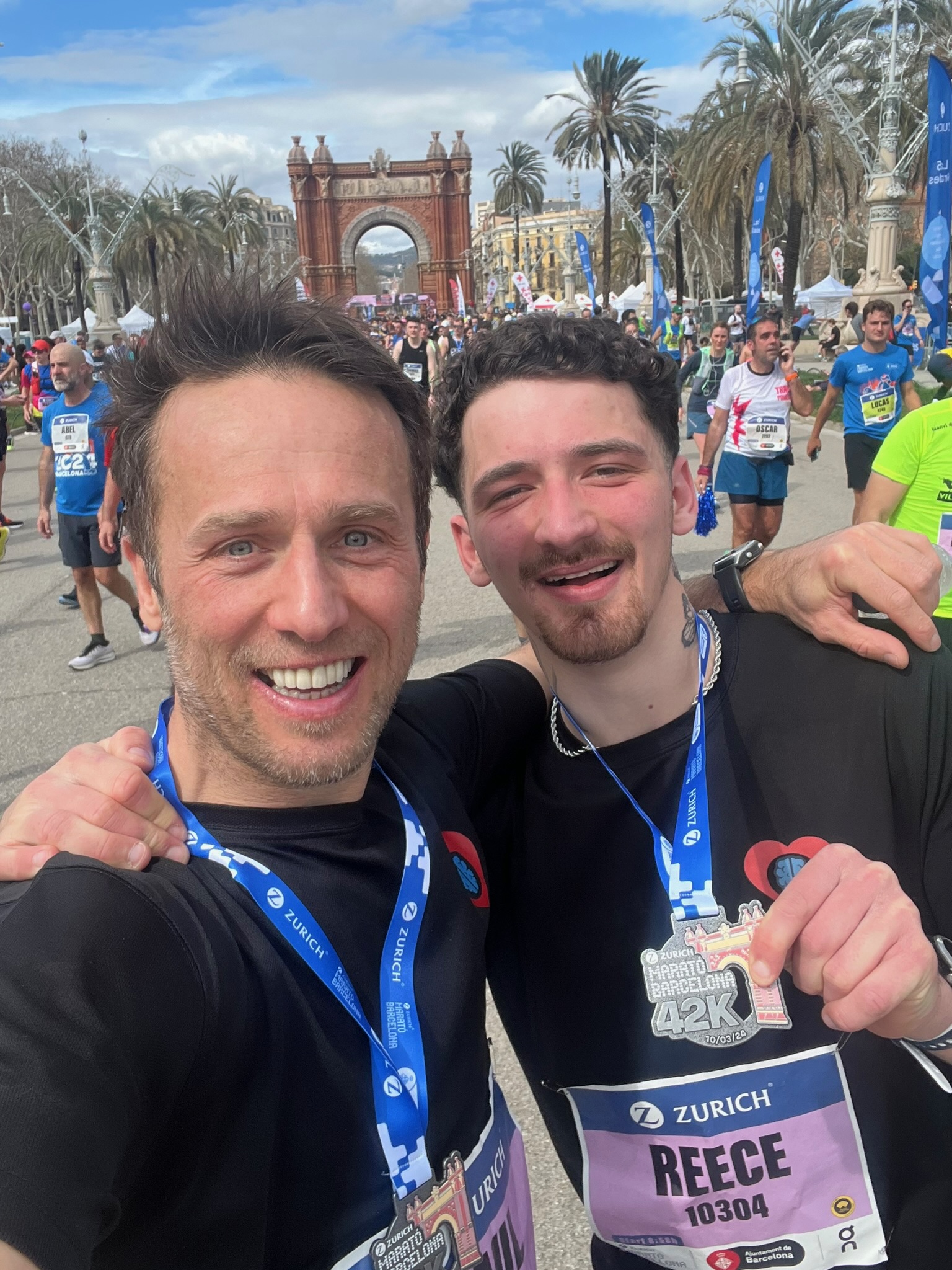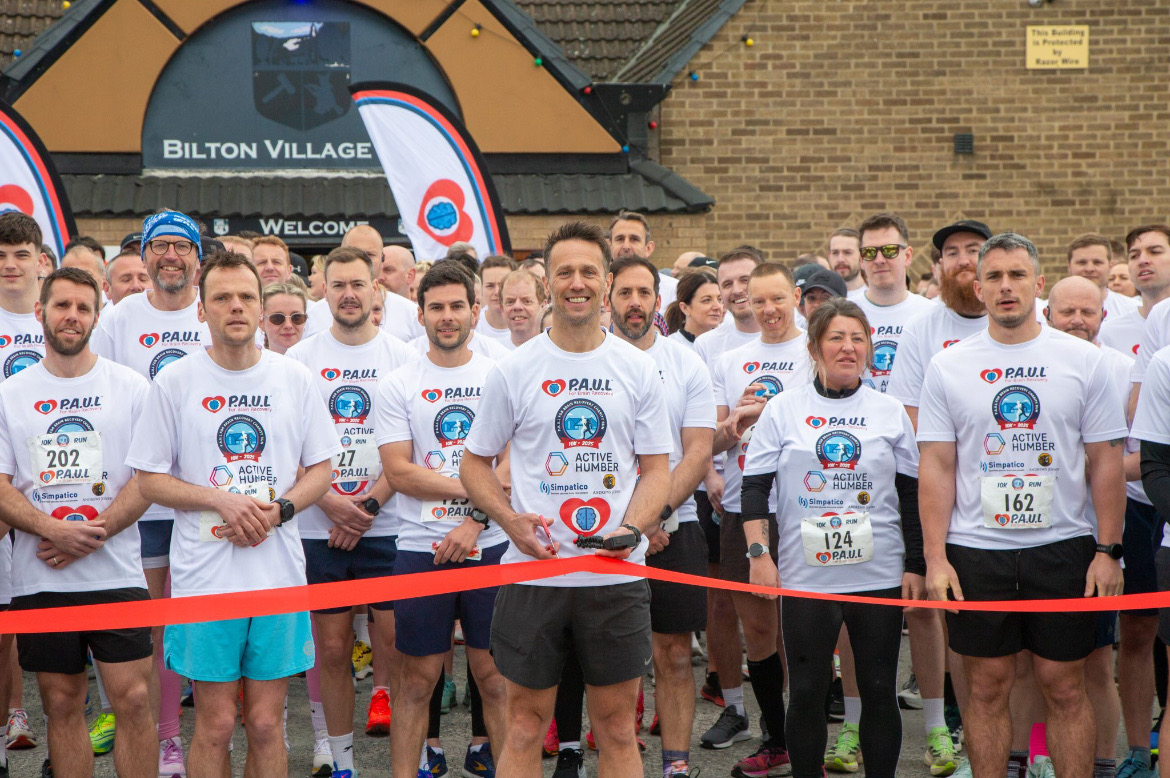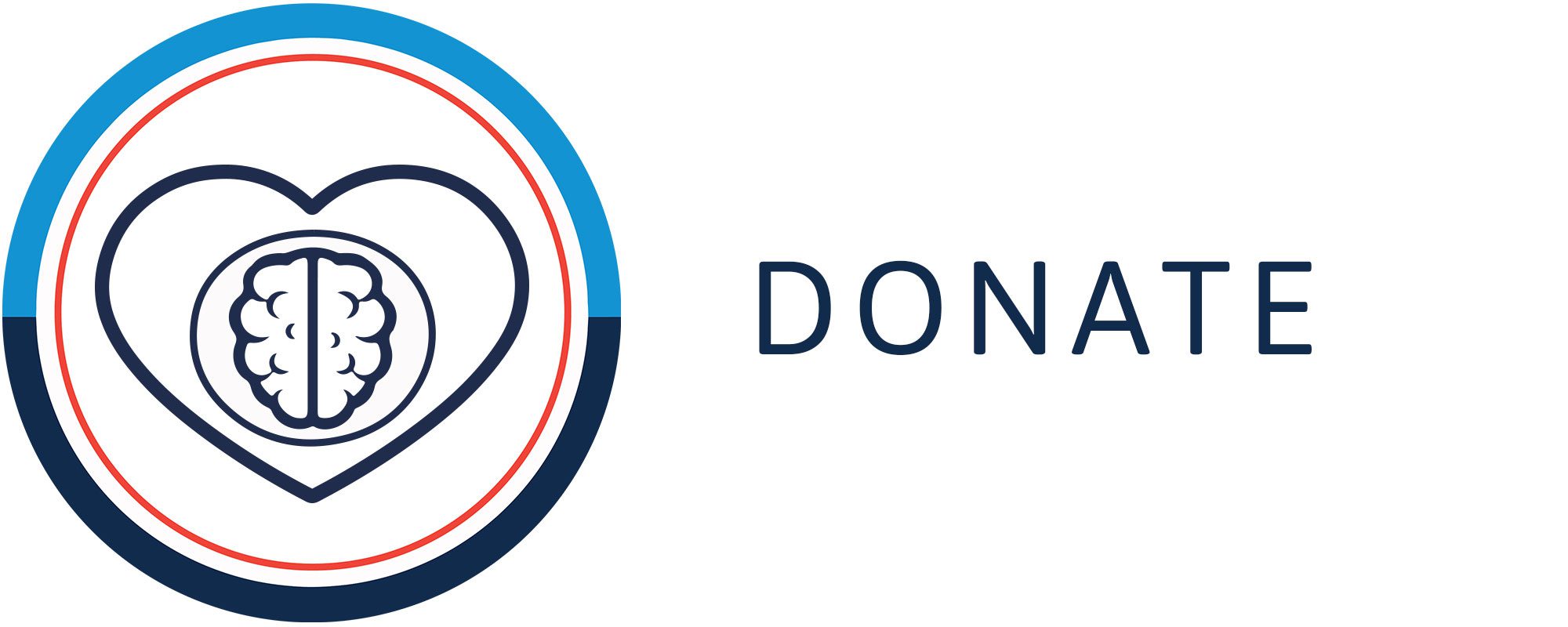“I could never do what you do.” This is a phrase Paul Spence hears a lot.
On the tenth anniversary of his first marathon, many who know Paul Spence now see a powerful, ambitious, capable man in control of his life and ambitions.
His talks inspire people in the business, health care and education sectors, and business as well as those undertaking their own recovery journeys. He has challenged the perceptions of a nation and raised the aspirations of others while promoting awareness of acquired brain injury (ABI). Through his charity work at P.A.U.L. For Brain Recovery, he is seen as a hero. He doesn’t see that in himself, reminding people, “I’m just a local lad.”
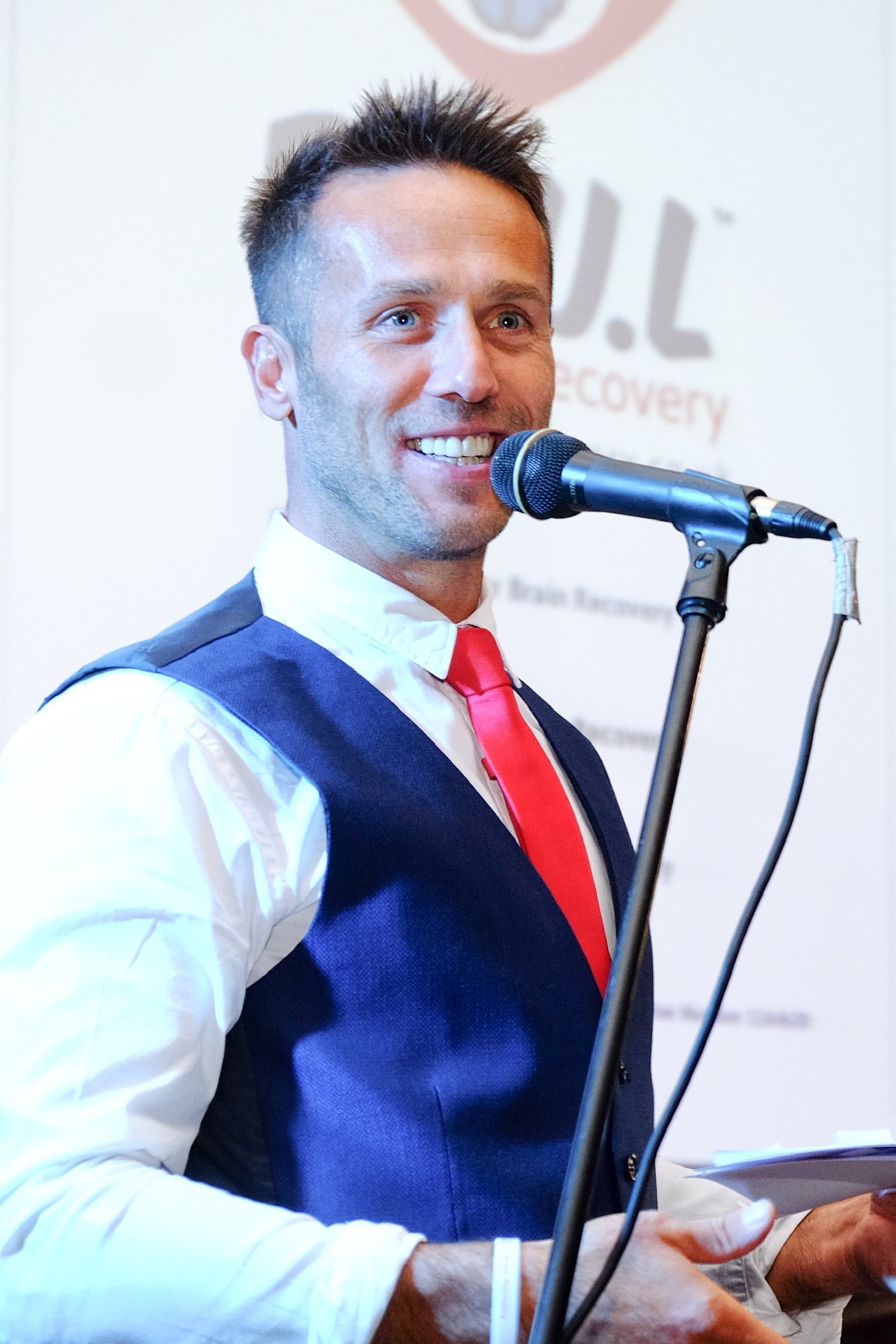
A traumatic assault on Easter Sunday 2012 transformed everything Paul knew life to be. What defined him as a person, father, partner, and foreman responsible for twenty others suddenly changed. Paul started a journey through some of his darkest, most frightening days. Two years into recovery, he believed he would never find “normal” again. “I didn’t know what to do with myself.”

It’s not what you know, it’s who
Paul is not afraid to share the painful secret which powers him through a challenging journey. The first is: “Start small, dream big.” It comes from experience. When leaving the house was a big deal for him, running was never in his thoughts. Over-planning was avoided at all costs.
“One step at a time” is another of his favourite sayings. While Paul was still in hospital, finding new ways to do old things was the first step. He relied on coping strategies to deal with loss of function. But severe memory loss, and limited insight made remembering his own health needs frustrating.
Paul set out to define himself all over again, developing new independence and expectations, but he still felt like a shell of a man. Neither relationships nor work made sense to him. Just when he thought he had things on track, there were setbacks.
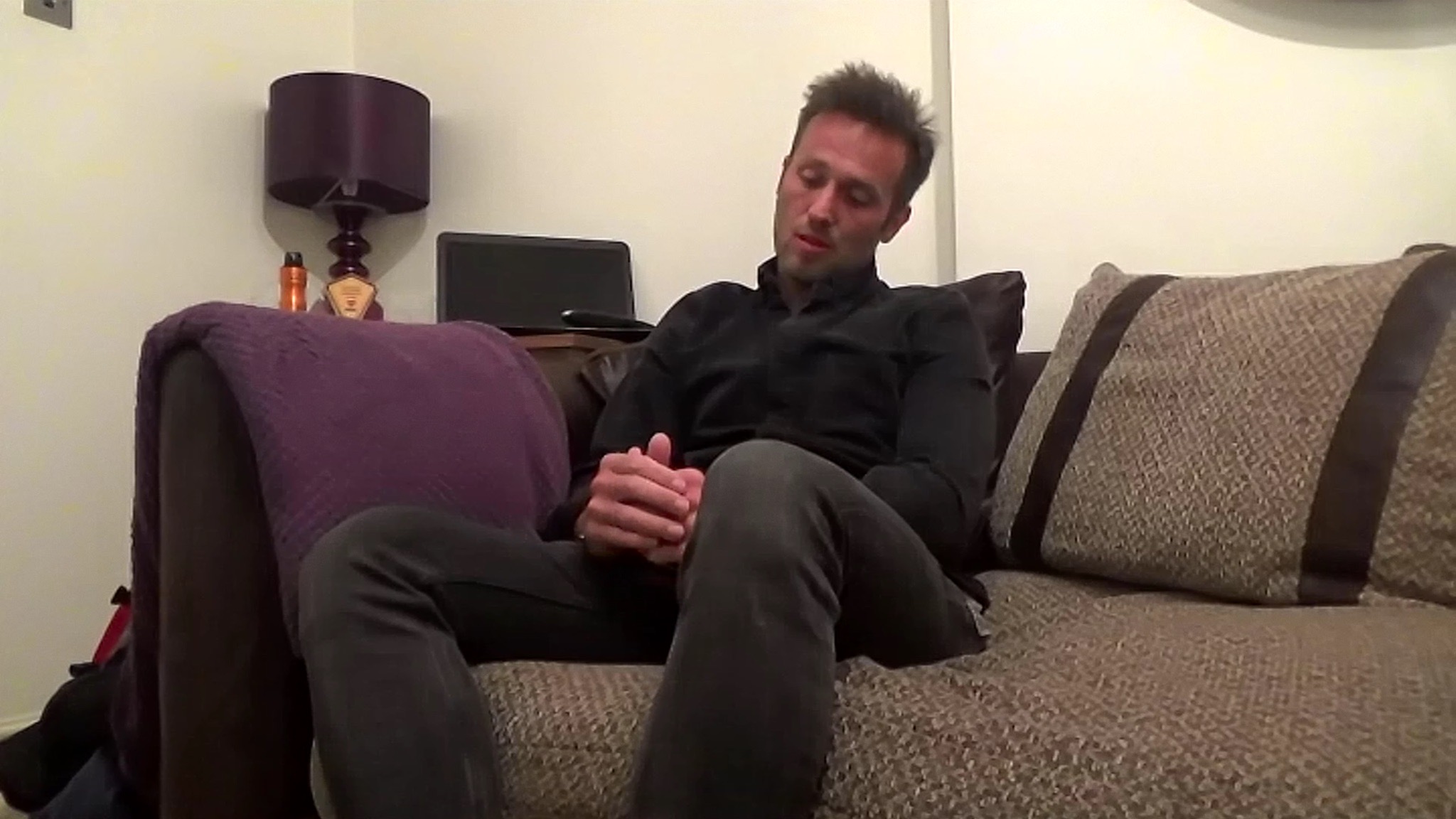
But a year after Paul’s brain injury, close family and then friends supported and sponsored him through a half marathon to make new positive memories and raise funds for Hull Royal Infirmary to say thank you for saving his life. Together, they raised £17,000 for the Neuro Trauma Wards at Hull Royal Infirmary. Fundraising became his focus for motivation. But recovery and staying positive takes energy. “It wasn’t clear-cut. There were always grey days – days when I was unmotivated, did nothing. Days where I wanted to cry.” Still, he knew he wanted to be the best person he could be.
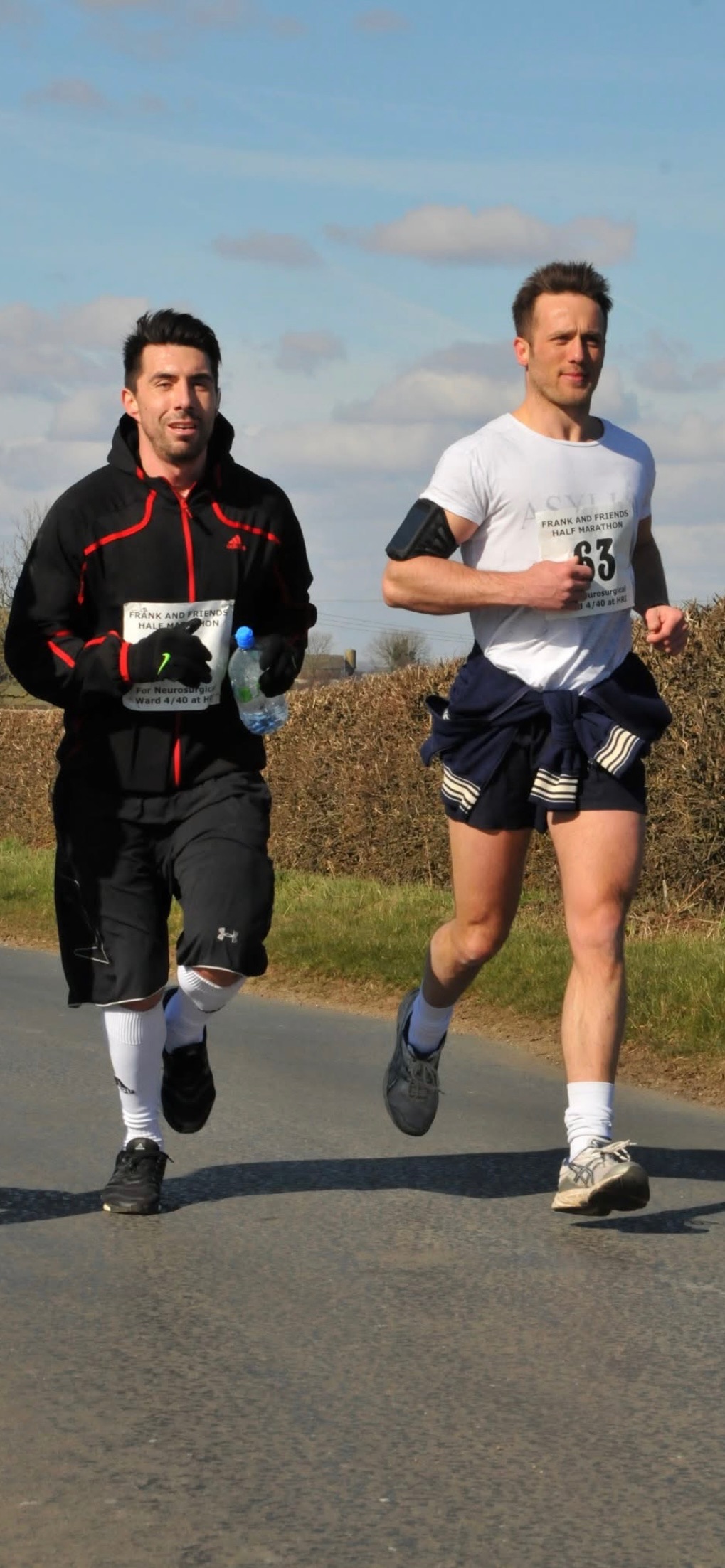
“I never thought I’d run a marathon,” he confides, reflecting on how his mind works now. “Before my brain injury, I might have talked myself out of it. Negative thoughts stop people from doing things. We convince ourselves to do things differently.”
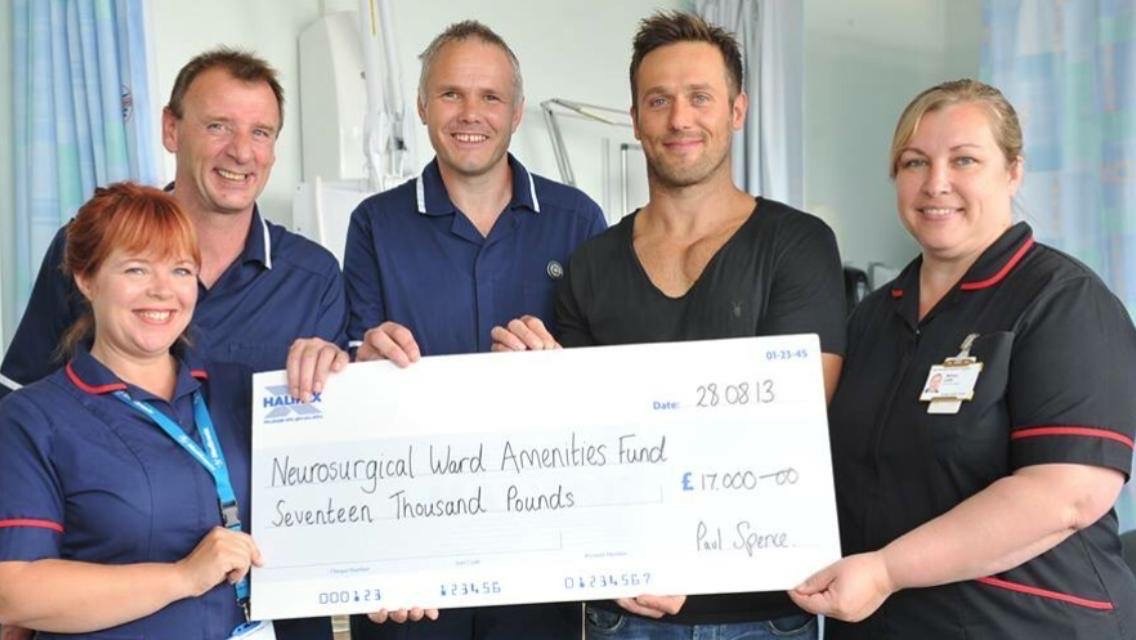
But three years after Paul’s ABI, the question was prompted by successfully completing the half marathon: “Did I have what it takes to complete a full marathon?”
There was only one way to find out.
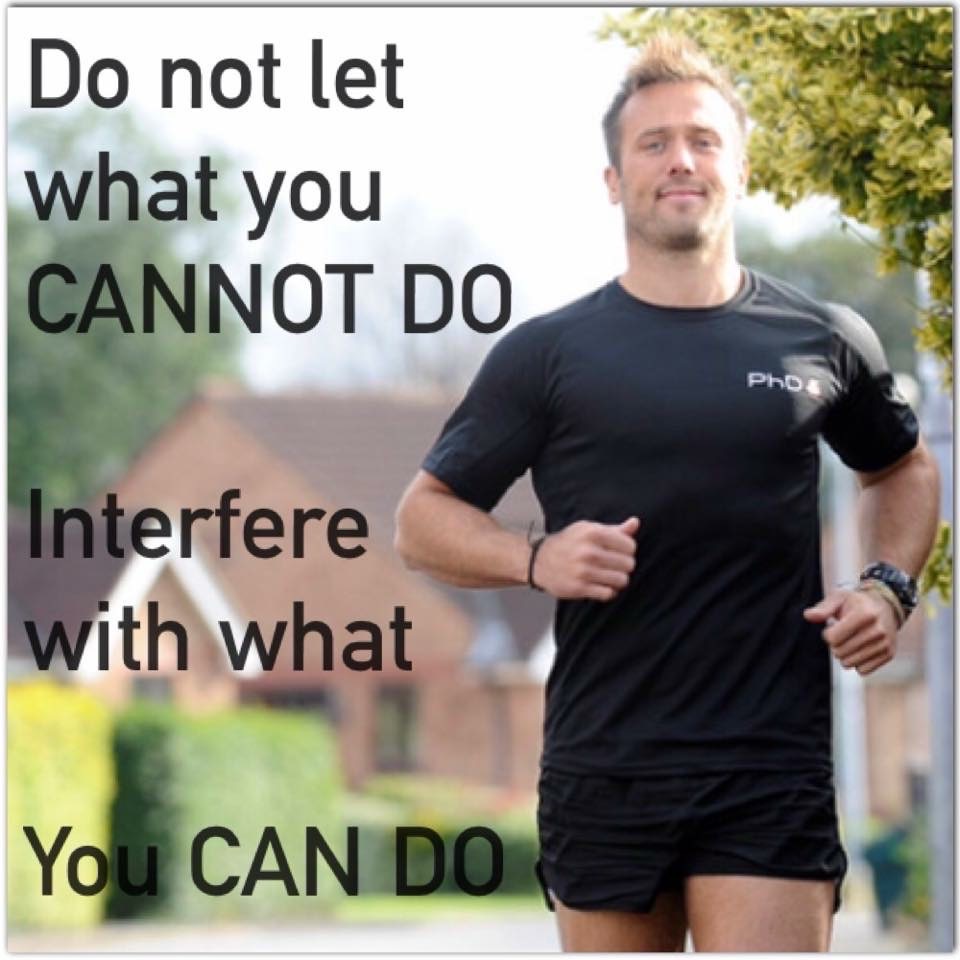
He admits there is a parallel for him between the structure he gradually, frustratingly built to support his recovery, and the training it morphed into. Running brought a new value based on who he still was – ambitious, caring, and a man motivated to embrace life.
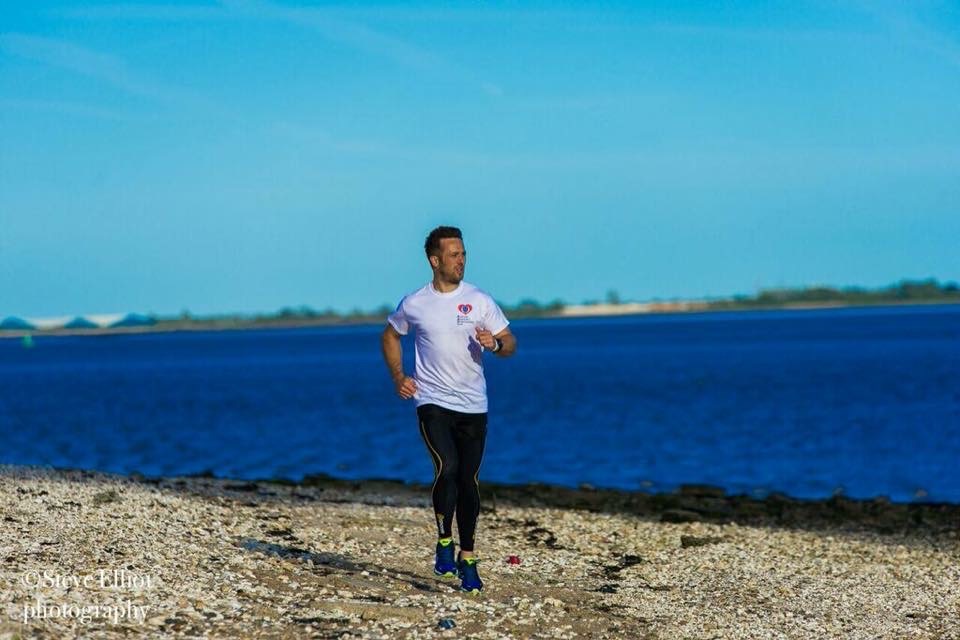
“Life is never as bad as it is after a run”
Accountability gave Paul a purpose and understanding. “So much focus was on raising money,” he remembers, but doing the endless miles of training cleared his head and supported his mental health.
But his determination did not stop the bad days: “I would push myself too hard. My body was hurting some days. It felt impossible. There were days when I felt like giving up, but I never did.”
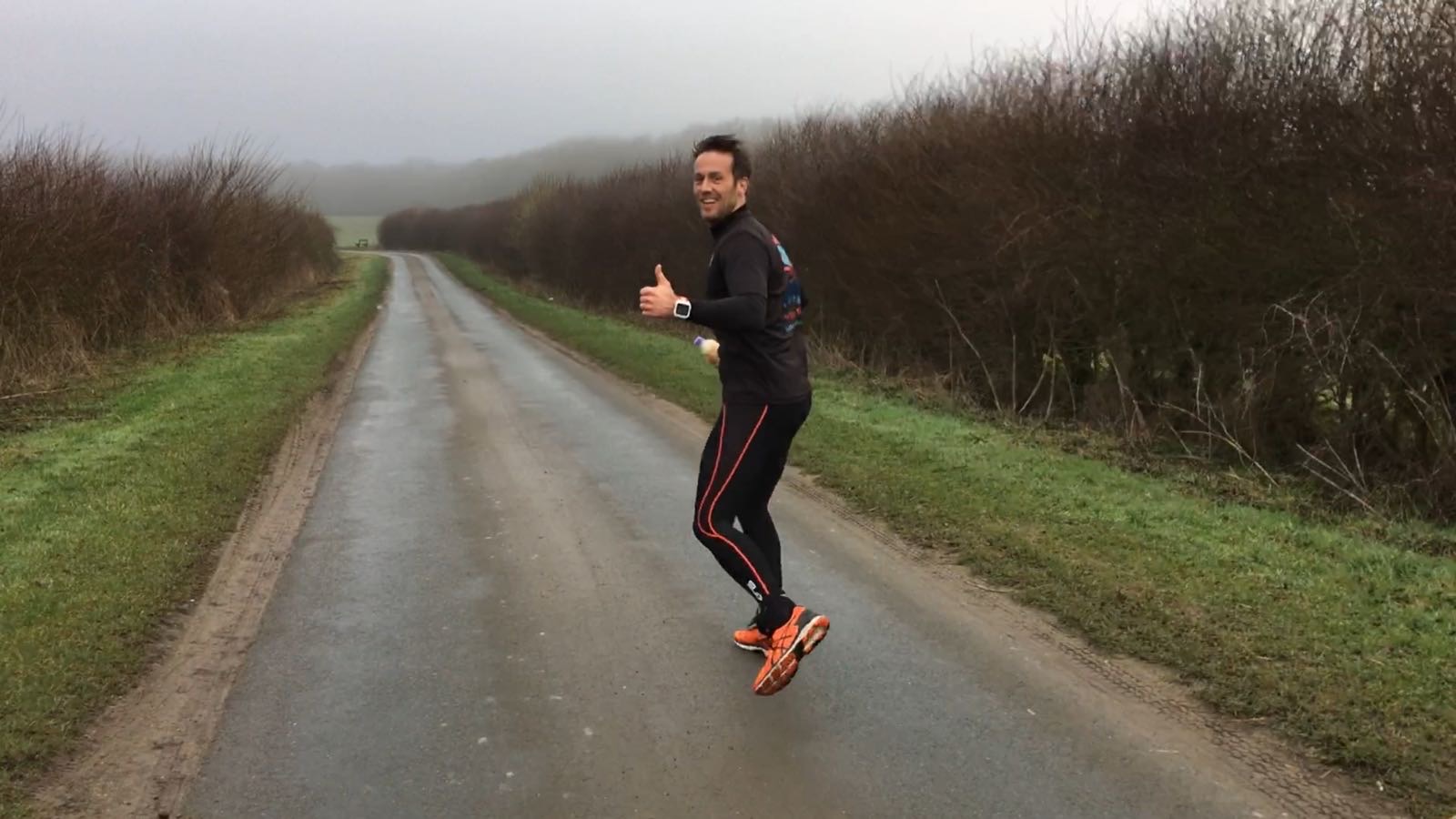
Need for better community support services to help others affected by ABI
Single steps of achievement motivated Paul. He recognised the need for better community support services and set up a Facebook page to raise awareness and help others affected by ABI.
Life events like passing his driving test encouraged him. Friends trained with him. People believed in him. And finally, he was ready toi take on the marathon. “It was amazing when I put on the shirt covered with sponsorships for the marathon. It was a huge lift, but very humbling too.“
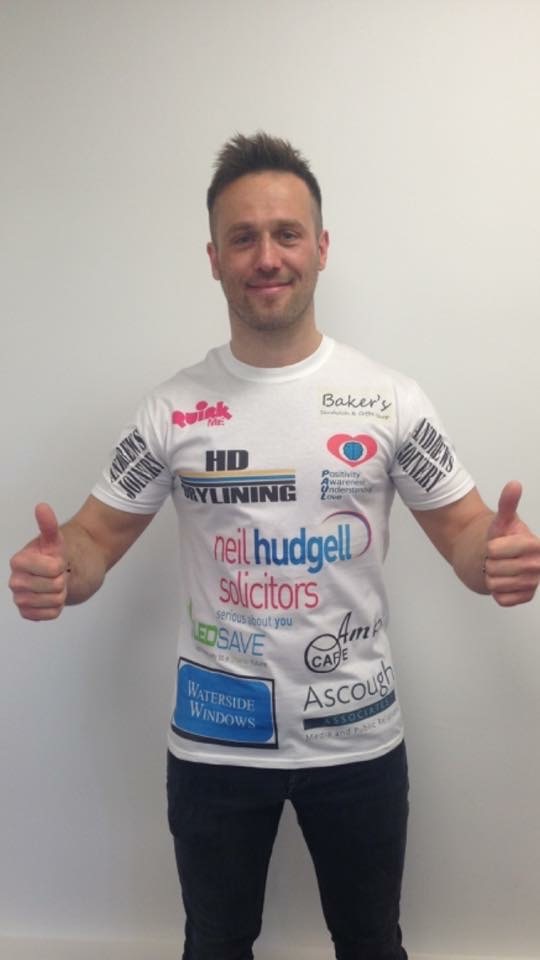
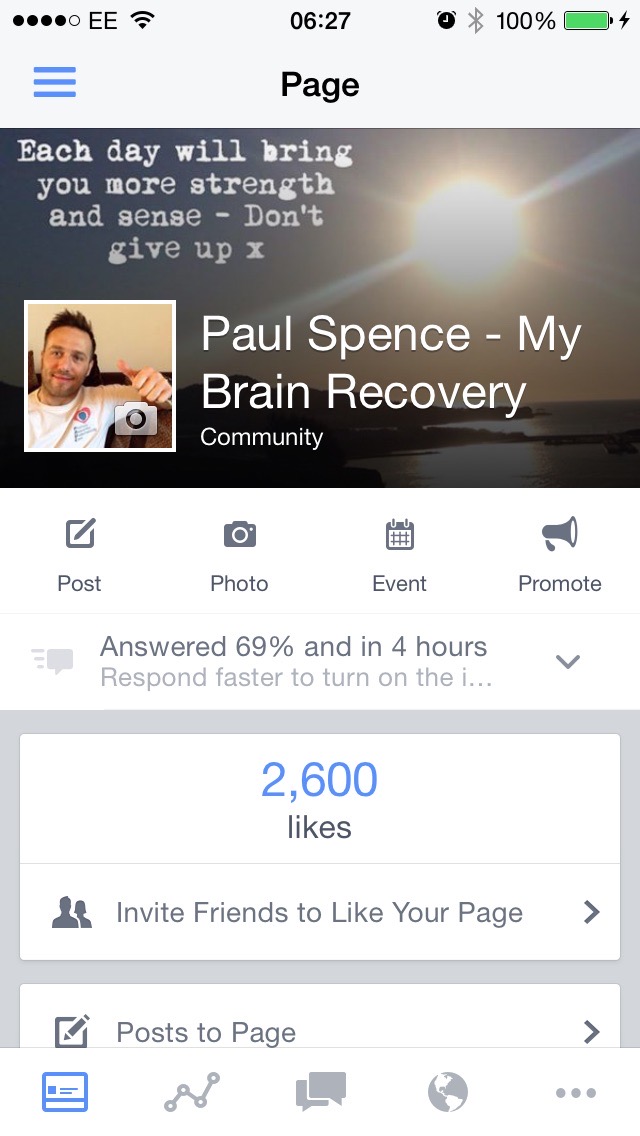
“I would not be the person I am without that first marathon”
Many who now know Paul speak of his honesty and openness. These continue to be two key parts of Paul’s journey.
The day before his first marathon was exciting. “I had to have the faith I could do it. I had to just keep going – to reach Bilton Village Hall to run the final 10K with the hundreds of supporters. They keep me going. That fantastic support made a huge difference.”
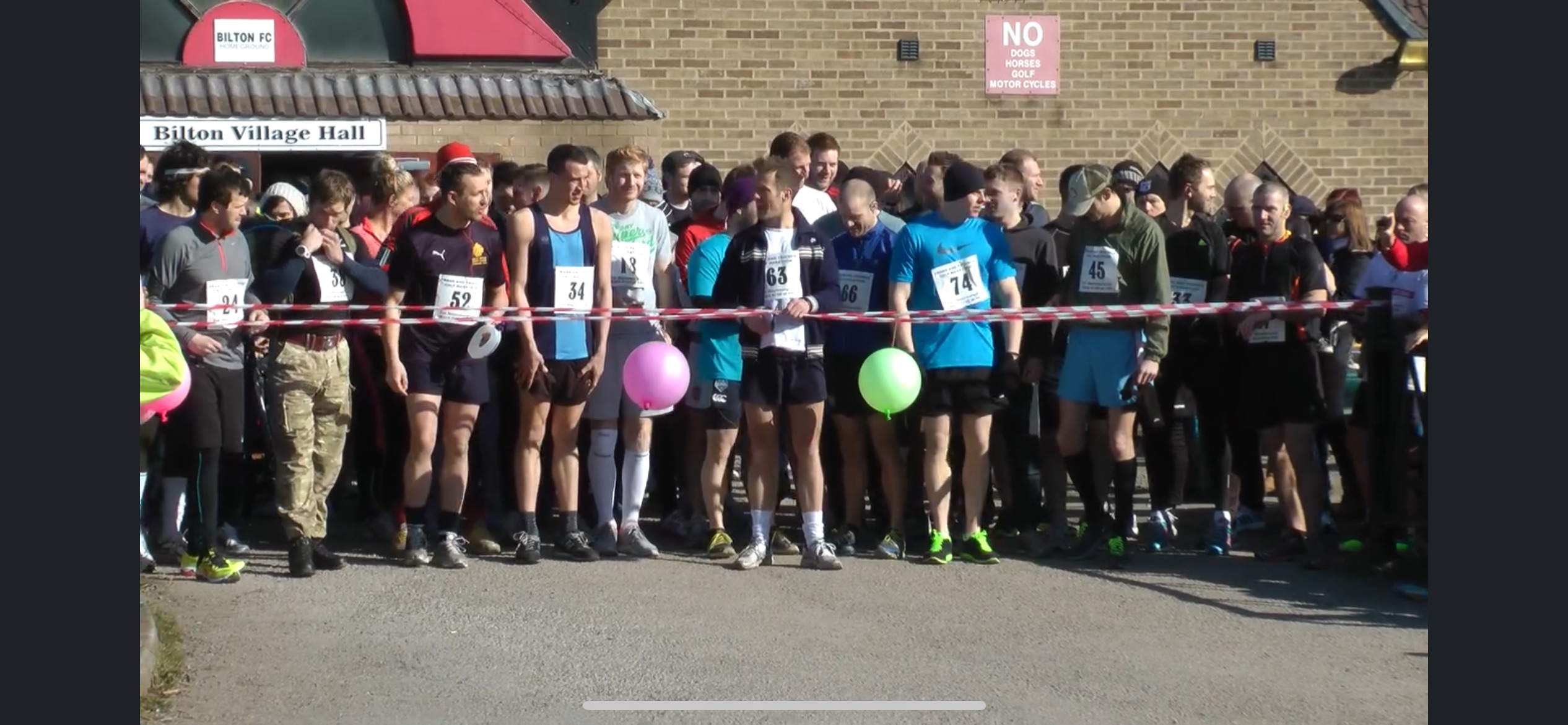
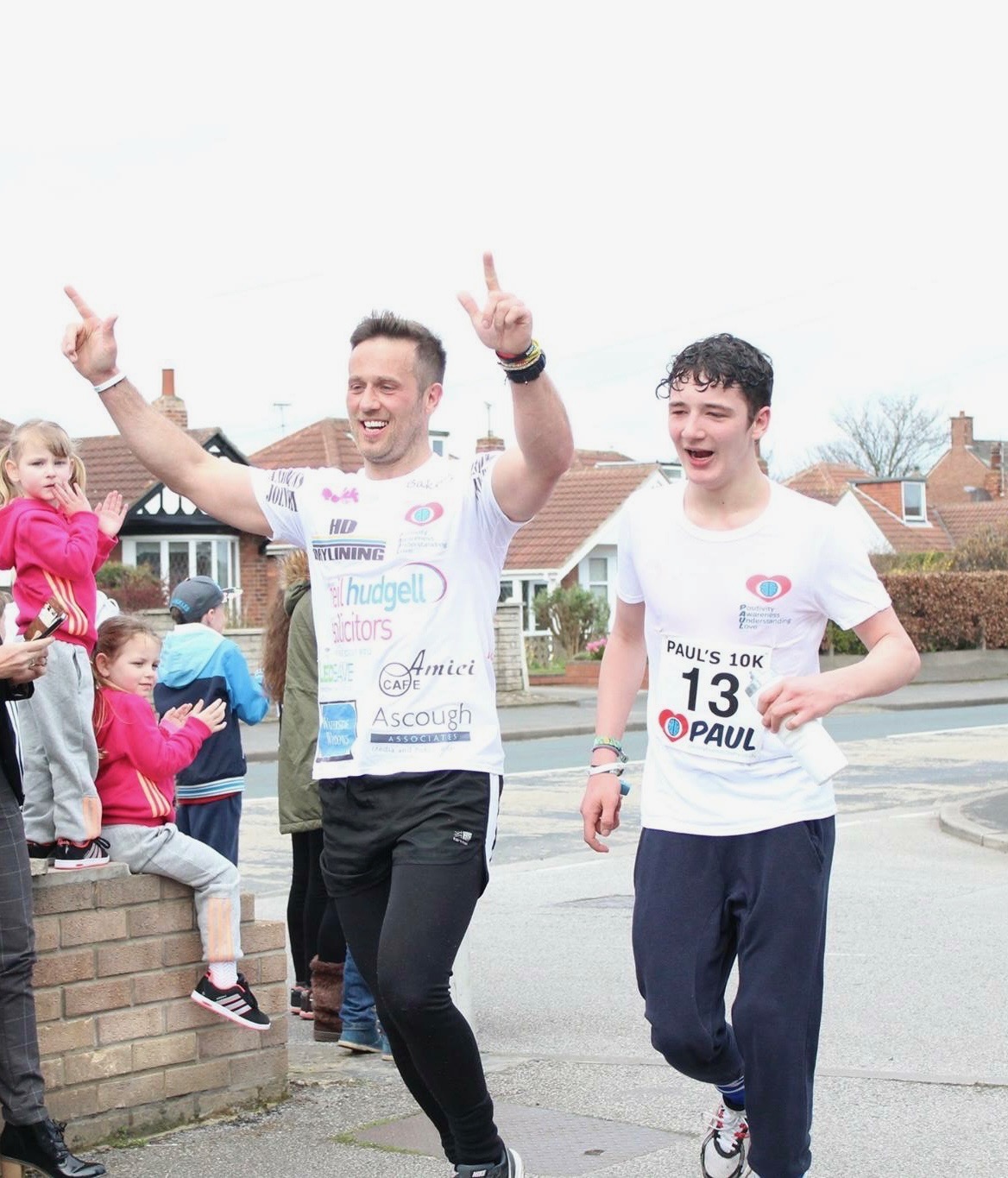
Together, Paul and his supporters raised £7,650 in the process, which truly felt amazing. “My friends and family supported me so much. Yes, I was tired, and everything hurt again. That went away after a few days. That first marathon took me out of my comfort zone, but it gave me a sense of direction. It didn’t use to be like that, but through hard work, persistence, and determination, it was achieved.”
Through the Facebook page, a great sense of community grew. People who wanted to support Paul’s burning ambition for better service in the community for people and families affected by ABI. “That stayed. I had to do it again, and the rest is history.”

As a result, Paul founded the charity P.A.U.L For Brain Recovery, with the aim of making life after ABI easier for people by providing support, guidance, education, and well-being sessions to empower all affected.

On the road again
Paul wanted to enjoy the benefits of running with family and friends. In the ten years since that first marathon, they have run worldwide and raised tens of thousands of pounds to raise awareness and support the development of the charity. Paul has even inspired his son Reece to be a runner – and amazingly, they run marathons together.
As Paul prepares for his annual celebratory race this Easter, his journey continues to be that of “the local lad””, driven by the very personality he feared he had lost. Ambitious, caring, and focused.
